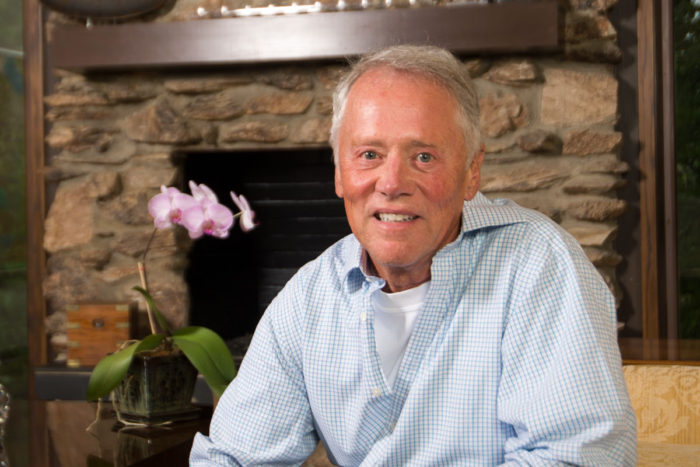Kuehner commits $15 million to fund personalized medicine research
Gift supports innovative approaches to diagnosis, treatment, prevention of heart disease
 Joe Angeles
Joe AngelesWashington University alumnus Kim D. Kuehner has committed $15 million to Washington University School of Medicine in St. Louis to support research that advances personalized approaches to fighting heart disease. His gift will establish and endow the Kim D. Kuehner Program for Personalized Cardiovascular Medicine.
Washington University alumnus Kim D. Kuehner has committed $15 million through outright and planned gifts to support research that advances personalized approaches to fighting heart disease, the leading cause of death in the United States and worldwide. His gift to Washington University School of Medicine in St. Louis will establish and endow the Kim D. Kuehner Program for Personalized Cardiovascular Medicine. The program will provide an endowed source of funding for innovative research aimed at improving the prevention, diagnosis and treatment of heart disease.
“Our most sincere gratitude goes to Kim Kuehner for his extraordinary generosity and vision,” said Chancellor Mark S. Wrighton. “With this endowment, our creative, talented physicians and scientists can make significant inroads into understanding how a person’s genetic makeup and biomarkers influence heart health. Such information is critical for developing more personalized approaches and treatments for heart disease.”
In the U.S. alone, the Centers for Disease Control and Prevention estimates that more than 600,000 people die of heart disease each year. That’s about one in every four deaths.
“This new program will allow us to leverage our leadership in personalized medicine to develop tailored approaches to cardiovascular disease that focus on patients’ individual genetic makeup or the biology of their condition,” said David H. Perlmutter, MD, executive vice chancellor for medical affairs and the George and Carol Bauer Dean of the School of Medicine. “Mr. Kuehner’s generosity and deep interest in addressing a significant health challenge will benefit patients around the globe.”
The Kuehner program will fund competitive research grants within the School of Medicine. Each year, the school will issue a call for proposals from faculty members. A panel of scientists and physicians at the medical school will award grants to the most promising projects in the emerging field of precision cardiovascular medicine. Emphasis will be placed on early-stage research that, if successful, has the potential to attract additional funding from government agencies, foundations or corporations.
According to Perlmutter, the program represents the next phase of the School of Medicine’s personalized medicine initiative. “We laid the groundwork by developing a network of collaborative research centers, many of them funded by dedicated benefactors such as Mr. Kuehner, that provide specialized expertise in genomics, immunotherapy, gene editing and other critical areas to researchers through the medical school,” Perlmutter said. “The Kuehner program marks the beginning of our efforts to couple these resources with disease-specific personalized medicine programs that advance groundbreaking therapies for specific patient populations.”
Kuehner’s gift continues a long family tradition of support to Washington University. His parents, Howard and Hortense “Horty” Kuehner, met while both were students at the university in the late 1930s. Over the years, the elder Kuehners established an endowed professorship at Olin Business School and endowed scholarships in the business school and the Sam Fox School of Design & Visual Arts.
“While this contribution reflects my interest in medical research, it also continues my parents’ long history of supporting Washington University,” Kim Kuehner said.
Kuehner graduated from Washington University with a master’s degree in business administration in 1977. He retired in 2016 after a nearly 40-year career as a men’s clothing retailer, first at Famous-Barr and then at a sportswear store in Ladue that he established and ran for 30 years. In 2017, Kuehner provided $2 million to support construction of Anabeth and John Weil Hall in the university’s Sam Fox School of Design & Visual Arts. A courtyard in Weil Hall will be named the Kuehner Family Court in memory of Kuehner’s parents, sister and grandparents.






